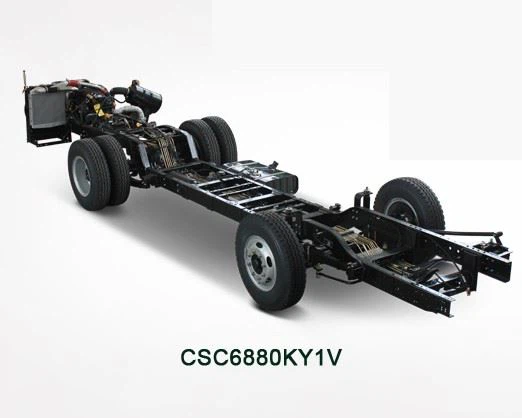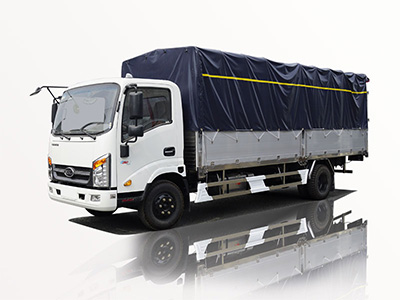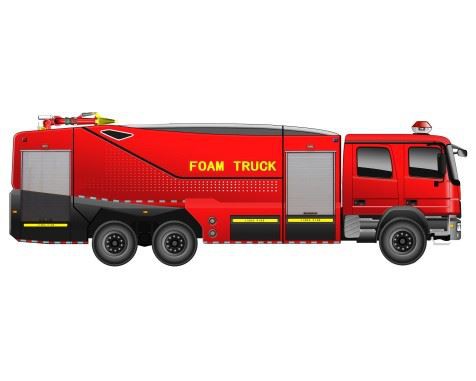Five ton trucks are versatile vehicles that cater to a variety of transportation and hauling needs. They are widely used in both commercial and personal settings. In this article, we will explore everything about five ton trucks, including their specifications, advantages, and practical applications. Whether you are considering a purchase, renting one, or simply want to understand how they fit into logistics, this comprehensive guide is for you.
Understanding Five Ton Trucks
What is a Five Ton Truck?
A five ton truck is categorized based on its payload capacity. Specifically, it can carry up to 5,000 kilograms (approximately 11,000 pounds) of cargo. These trucks are commonly used for transporting goods, equipment, and materials effectively and efficiently.
Types of Five Ton Trucks
Five ton trucks come in various configurations and types to suit different needs:
- Flatbed Trucks: Ideal for transporting large and bulky items that do not require protection from the elements.
- Box Trucks: Enclosed trucks with a cargo area for items that need protection from the weather.
- Dump Trucks: Equipped with a mechanism to unload materials, making them perfect for construction projects.
- Reefer Trucks: Refrigerated trucks suitable for transporting perishable goods.
Specifications of Five Ton Trucks
Dimensions and Capacity
| Type | Payload Capacity | Typical Length | Height | Width |
|---|---|---|---|---|
| Flatbed Truck | Up to 5,000 kg | 22-26 feet | 8-10 feet | 7.5-8.5 feet |
| Box Truck | Up to 5,000 kg | 24-30 feet | 9-10 feet | 8-8.5 feet |
| Dump Truck | Up to 5,000 kg | 20-24 feet | 8-10 feet | 7.5-8.5 feet |
| Reefer Truck | Up to 5,000 kg | 24-28 feet | 9-10 feet | 8-8.5 feet |
Engine and Performance
Five ton trucks typically come with diesel engines that provide the necessary power and torque for heavy loads. Engine specifications can vary, but common features include:
- Engine Size: Usually between 4 to 6 liters
- Horsepower: Ranges from 150 to 300 HP
- Towing Capacity: Generally ranges from 5,000 to 10,000 lbs
Benefits of Using a Five Ton Truck
Cost Efficiency
Five ton trucks offer a cost-effective solution for transporting goods compared to smaller vehicles. Their larger payload capacity means fewer trips are required, saving time and fuel costs.
Versatility
These trucks can be used across a broad spectrum of industries including construction, landscaping, moving services, and more. This versatility makes them ideal for businesses with varied transportation needs.
Improved Handling and Maneuverability
Despite their size, five ton trucks are generally easier to handle than larger commercial trucks, making them suitable for urban driving and tight spaces.
Practical Applications of Five Ton Trucks
Construction and Heavy Equipment Transport
Five ton trucks are crucial in the construction industry. They can transport heavy equipment like excavators, generators, and construction materials like bricks and concrete blocks.
Logistics and Delivery Services
Businesses that rely on delivery services often use five ton trucks. Their capacity allows for more substantial deliveries while remaining efficient in terms of fuel consumption and handling.
Landscaping and Material Removal
Landscapers frequently use five ton trucks to transport plants, soil, and other materials. They are also useful for debris removal after landscaping projects.
Buying vs. Renting a Five Ton Truck
Advantages of Buying
- Long-term investment if your business regularly requires a truck
- Customization options available
- Tax benefits and write-offs for business purchases
Advantages of Renting
- No long-term commitment; flexibility to rent as needed
- Access to newer models with advanced features
- No maintenance costs associated with ownership
Maintenance Tips for Five Ton Trucks
Regular Inspections
It’s critical to conduct regular inspections on essential components, including the brakes, tires, and engine. Early detection of issues can save time and cost.
Oil Changes and Fluid Checks
Schedule oil changes based on manufacturer recommendations. Regularly check other fluids like coolant and transmission fluid, as keeping them at appropriate levels enhances performance.
Tire Maintenance
Ensure tire pressure is checked and maintained at optimal levels. Rotate tires as needed to ensure even wear and prolong durability.
Safety Considerations When Driving a Five Ton Truck
Pre-Driving Checklist
- Check all lights and signals
- Inspect mirrors for clear visibility
- Ensure cargo is loaded properly and secured
Driving Tips
- Take wider turns to accommodate for the truck’s size
- Maintain a safe following distance to allow for longer stopping distances
- Be aware of height restrictions and low-clearance areas
Five Ton Truck FAQ
1. What is the average cost of renting a five ton truck?
The average cost can range from $100 to $200 per day depending on the rental company and location.
2. How do I know if a five ton truck is suitable for my needs?
Consider your cargo weight and volume. If your needs align with the truck’s 5,000 kg capacity, it is likely suitable.
3. What kind of license do I need to drive a five ton truck?
Most regions require a standard driver’s license, but check local regulations as some may require a special license for larger trucks.
4. How do I load a five ton truck safely?
Distribute weight evenly and ensure cargo is secured to prevent shifting during transport. Use straps and ropes as necessary.
5. Can I modify a five ton truck for specialized use?
Yes, modifications can be made, such as adding a lift gate or customizing the cargo area. Consult with professionals for safe conversions.
6. What is the fuel efficiency of a typical five ton truck?
Fuel efficiency can vary but typically ranges from 10 to 15 miles per gallon, depending on the truck’s load and driving conditions.


